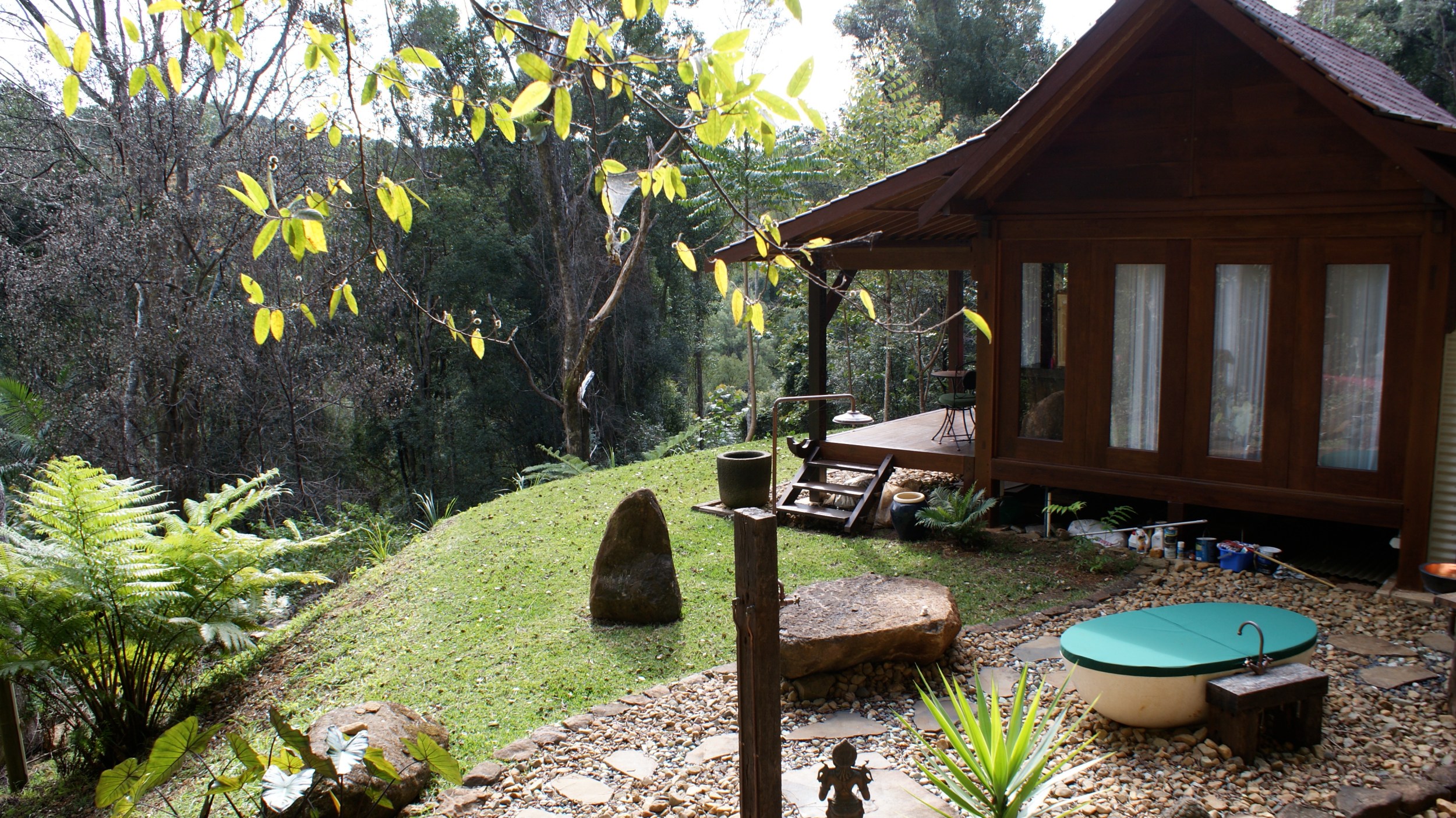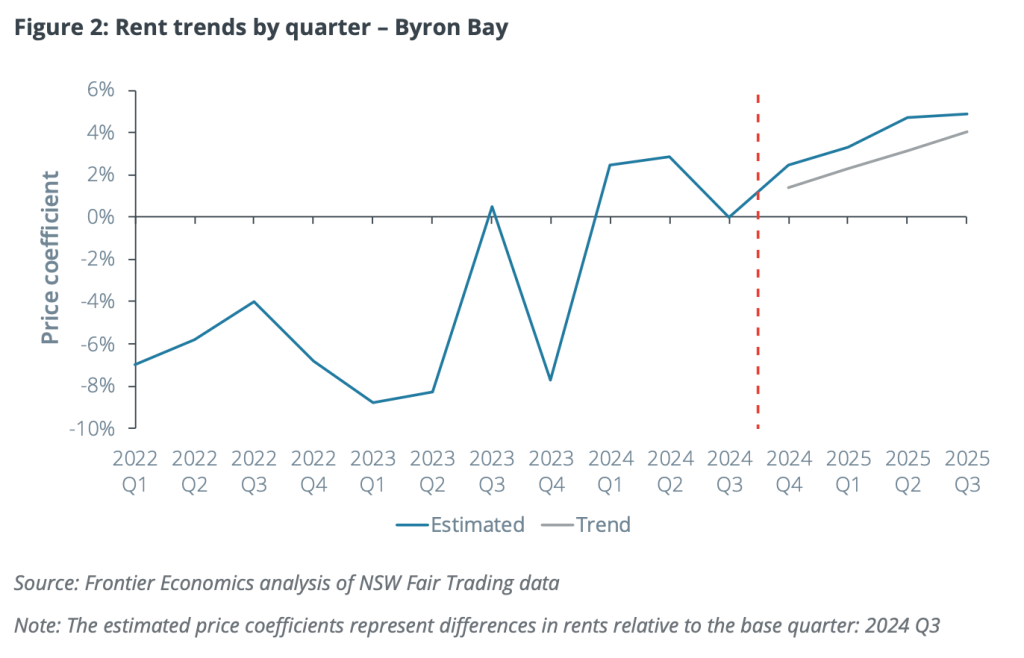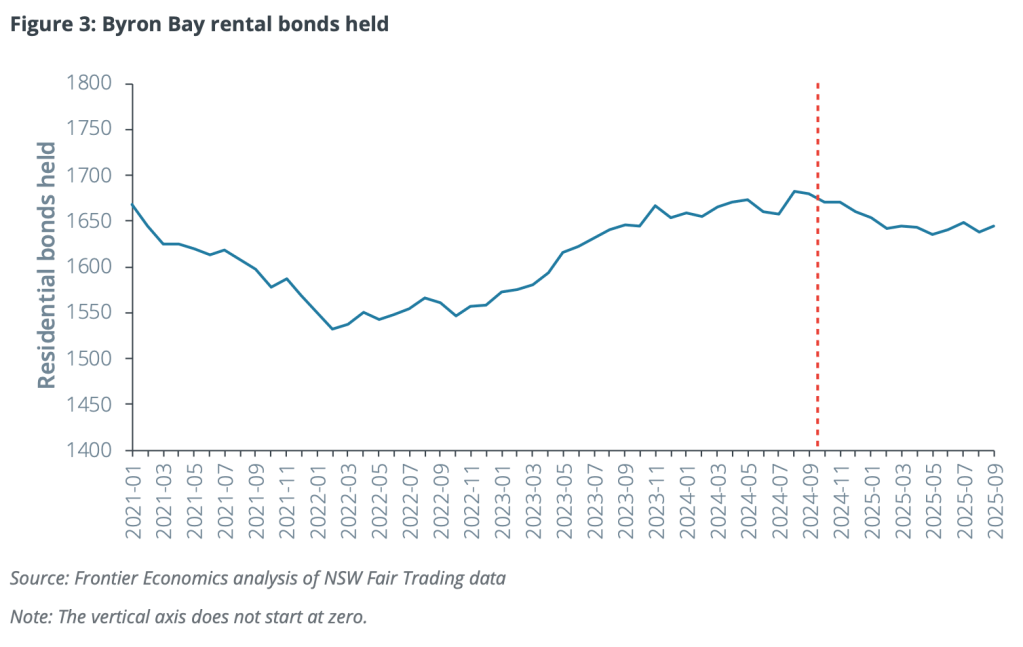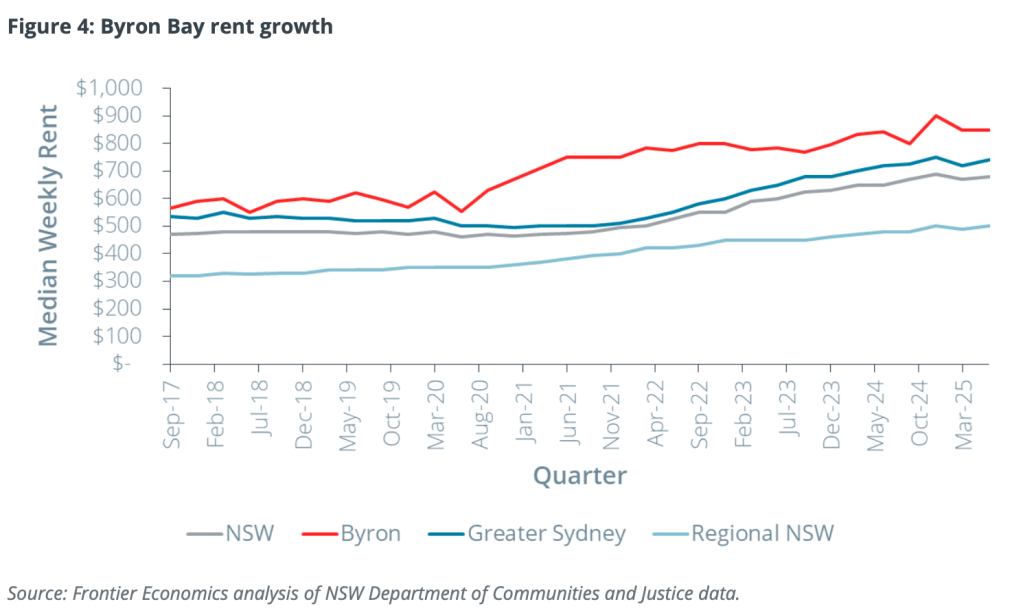Byron Bay one year later: Higher rents and no impact housing affordability
Key Takeaways
- The 60-day cap on short-term rentals in Byron Bay has failed to improve rental and housing affordability
- One year on from the cap’s introduction, rents and housing have hit record highs
- Byron Shire Council has failed to meet its own housing supply targets

Key Takeaways
- The 60-day cap on short-term rentals in Byron Bay has failed to improve rental and housing affordability
- One year on from the cap’s introduction, rents and housing have hit record highs
- Byron Shire Council has failed to meet its own housing supply targets
One year after the introduction of Byron Shire Council’s 60-day cap on short-term rental accommodation (STRA) there has been no increase in the number of properties on the long-term rental market or an improvement in housing affordability.
Independent analysis by Frontier Economics found the unprecedented STRA 60-day cap failed to deliver on the Council’s promise it would combat the housing crisis in Byron Bay.
Instead there are fewer long-term rental listings available and rental prices have risen to their highest ever levels with the average weekly rent increasing by 7 percent year-on-year, from $1,112 to $1,193.1


Frontier Economics’ analysis of publicly available rental bond data shows median rents in Byron Bay have been consistently above those in Greater Sydney.

The study, commissioned by Airbnb, supports a growing body of evidence which shows blunt measures, such as bans or caps on STRA, do not improve rental or housing affordability.
In New York, two years after short-term rentals were effectively banned, rents have increased over 8 percent and hotel prices have soared by nearly 13 percent. The lack of improvement in housing affordability has now led to advocates and New York City leaders to call for reforms to loosen restrictions.2
Airbnb Country Manager for Australia and New Zealand, Susan Wheeldon, said the findings are clear.
“This report confirms targeting short-term rentals is not a silver bullet to deal with the housing challenges in Byron Bay and distracts from the real need to build more homes.
“Airbnb supports fair regulation and in NSW the short-term sector is already regulated. We remain committed to working with the Council and NSW Government on practical solutions – but targeting short-term rentals won’t fix the housing shortage. We need action that boosts supply and protects tourism jobs that local communities rely on.”
STRA numbers overstated
The policy, implemented in September 2024, was designed to incentivise property owners to shift housing from the short-term to the long-term rental market to ease affordability.
However the report shows the justification for the cap was based on inflated data with the most recent data from AirDNA and NSW Fair Trading revealing the number of STRA properties in Byron Bay represents only 11 percent of properties, not the 35 percent claimed by Byron Shire Council.3
Frontier Economics economist, James Key, said the cap has not delivered on its promise to make housing more affordable with rental prices rising in line with trends and neighbouring locations.4
“Our independent analysis found no evidence the 60-day cap shifted properties into the long-term rental market or improved affordability. The lack of new housing supply remains the primary challenge for Byron Bay.
“It also found Byron Bay’s tourism sector could be facing a crunch with visitor numbers increasing5 while the Council is restricting short-term rental accommodation availability.”
Urban Development Institute of Australia (NSW) Chief Executive Officer Stuart Ayres said the key to improving housing affordability was boosting supply.
“This study is further evidence that the path to improved affordability is increasing the supply of homes. If we remove the bottlenecks in our planning system and let well-designed projects advance, we can deliver the homes families need and bring balance back to the market.”
The full report can be found here.